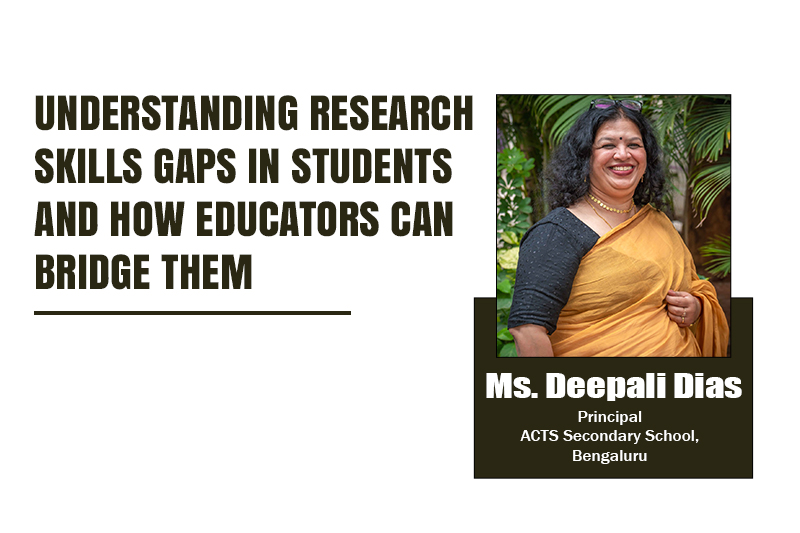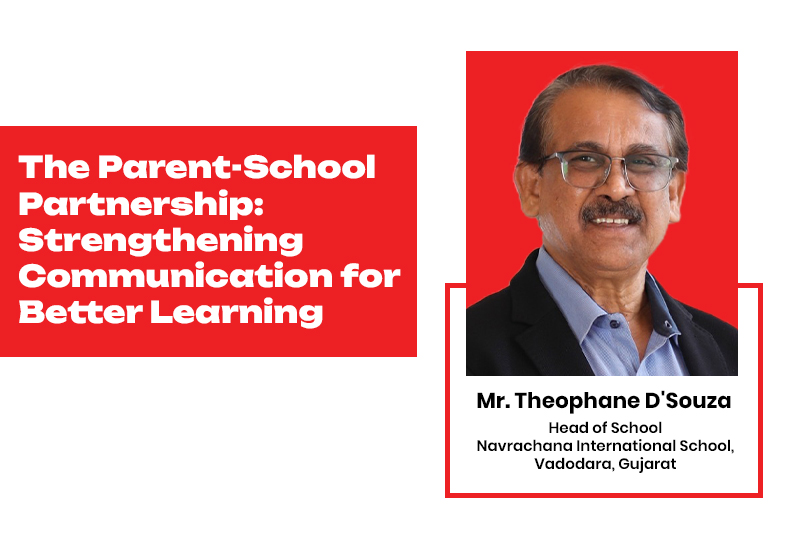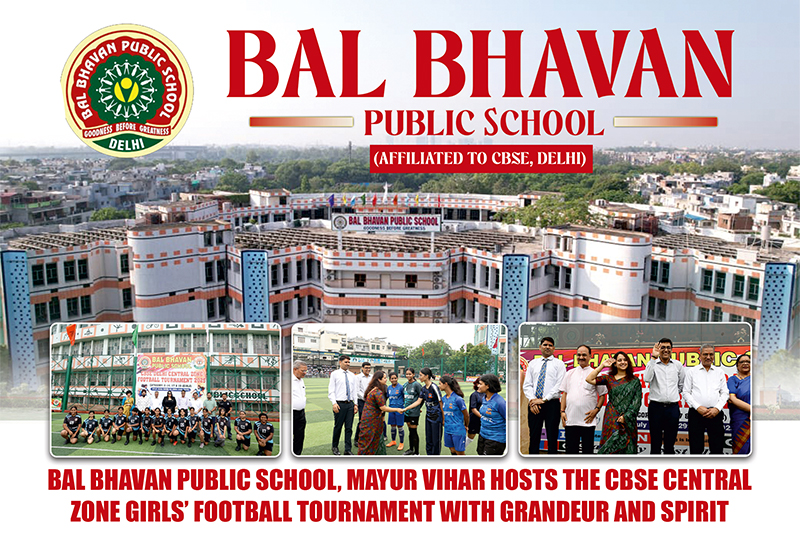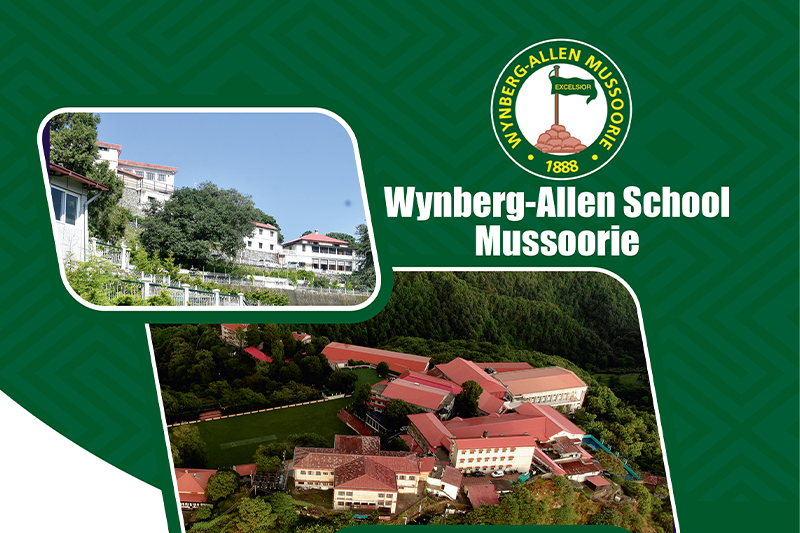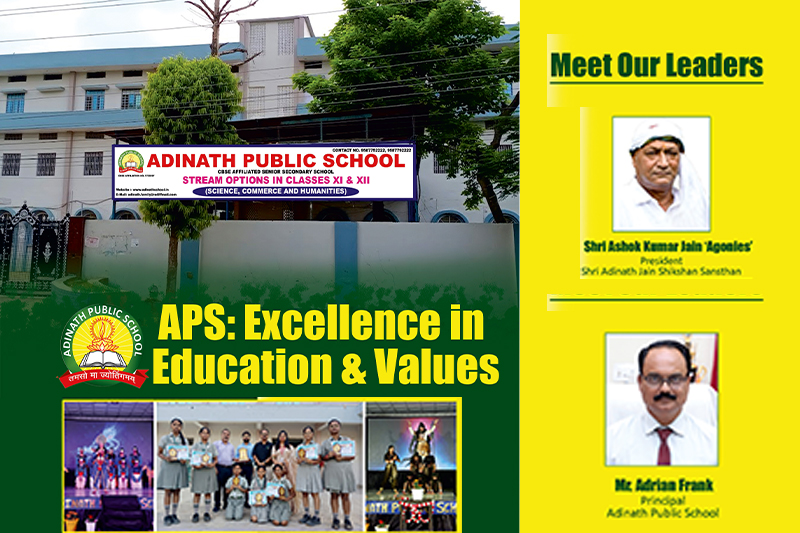Dr. Alpana Baveja, GD Goenka Signature School, Gurgaon: Schools as Future-Ready Innovation Hubs
“Education flourishes when curiosity leads, creativity guides, and students become co-creators of their learning journey.”
In a world evolving faster than ever—technologically, environmentally, and socially—education must do more than react to change; it must anticipate and lead it. Dr. Alpana Baveja, Director Principal of GD Goenka Signature School in Gurgaon, envisions a future where traditional schools transform into living learning laboratories—dynamic spaces where innovation, experimentation, and inquiry are woven into everyday schooling.
With over two decades of leadership at some of India’s premier educational institutions, Dr. Baveja is recognized as a progressive reformer. Her dedication to excellence and innovation has earned her accolades such as the Times Achievers of Education Award, Innovation in Education Award, and Best Mentor Educator Award. Her vision is clear: schools must evolve from rigid academic structures into adaptive ecosystems of exploration.
Rethinking the Purpose of Schooling
Dr. Baveja believes success in the 21st century depends less on rote knowledge and more on how students think, adapt, and create.
“We live in an age of complexity and disruption,” she says, “and our educational systems must prepare learners not just to cope, but to contribute meaningfully to an uncertain and rapidly evolving world.”
This means schools must stop functioning as static institutions and start operating as dynamic learning labs. Creativity can no longer be confined to extracurricular activities—it must become a core part of designing meaningful learning experiences.
Teachers as Designers of Discovery
At GD Goenka Signature School, teachers are no longer content deliverers; they are designers of discovery—facilitators who cultivate curiosity, collaboration, and critical thinking.
For example, a history unit was transformed into a simulation of the Indian Constituent Assembly. Students debated constitutional provisions, amended them, and collaboratively passed a new version. This exercise deepened their understanding of governance and fostered ownership of democratic values.
This transformation is supported by ongoing professional development through peer learning circles, interdisciplinary teams, and innovation workshops. Teachers are encouraged to prototype new ideas, reflect on their impact, and continuously improve.
“When teachers model risk-taking and curiosity,” Dr. Baveja explains, “students naturally follow.”
Turning Classrooms into Innovation Zones
Classrooms at GD Goenka Signature have become innovation zones where students tackle real-world problems. Middle schoolers conducted an energy audit of their campus, which resulted in sensor-based lighting installations and sustainability awareness campaigns.
Grade 6 and 7 students created a digital mental wellness guide using design and coding tools. Younger learners explored environmental science by building water filtration systems from everyday materials, connecting scientific concepts to social issues.
Senior students participated in Model United Nations simulations, gaining diplomacy, negotiation, and research skills vital for a globalized world.
“When classrooms function like mini-labs of exploration,” says Dr. Baveja, “learning becomes relevant, responsive, and remarkably memorable.”
Curriculum as a Playground for Ideas
Rigid subject silos are giving way to thematic, inquiry-based curricula that reflect the interconnectedness of the real world. For instance, a climate change unit blended science, economics, and visual arts as students created data-driven awareness campaigns displayed around the campus and shared digitally.
Another innovative project brought literature to life through robotics, with students programming models to animate novel scenes. This enhanced comprehension and facilitated problem-solving, communication, and collaboration.
“When students are given the tools to connect disciplines, they begin to see knowledge as an ecosystem, not a set of isolated facts,” Dr. Baveja notes.
Students as Co-Creators of Learning
Perhaps the most transformative shift at GD Goenka Signature is the empowerment of students as co-creators of their education.
In primary classrooms, a “Wonder Wall” invites children to post questions that spark curiosity—from “Why does the moon change shape?” to “How do birds learn to fly?” These questions evolve into personalized inquiry projects guided by educators.
Older students lead clubs, participate in peer feedback, and collaborate on lesson planning, fostering a sense of ownership and engagement that nurtures leadership, initiative, and self-awareness.
“Voice leads to ownership,” Dr. Baveja says. “And ownership transforms engagement into purpose.”
Leadership That Fosters Innovation
Dr. Baveja’s leadership philosophy nurtures curiosity, encourages experimentation, and builds trust. She believes fostering innovation does not require massive overhauls but consistent support for creative risk-taking, open dialogue, and celebrating effort as much as outcomes.
“Every great innovation starts with a bold question,” she says. “Our job as educators is to ensure those questions are never silenced but nurtured.”
Leaders must also provide flexible systems—such as scheduling that allows interdisciplinary projects and platforms for students to showcase their work.
She emphasizes that “when leaders are learners, “it sets the tone for the entire school community.
A School for the Future
The learning lab model embodies a simple but powerful idea: students are not just preparing to enter the world—they are already part of it. Education must shift from preparation to active participation, equipping students with tools to succeed and the agency to lead, question, and create.
Dr. Alpana Baveja envisions a future where every school is a living, breathing innovation hub—where children are empowered to learn about the world and change it.
“The best schools won’t just prepare children for the future,” she concludes. “They will empower them to shape it—fearlessly, empathetically, and imaginatively.”
Want more thought-provoking articles like this? Check out EducationToday – where education meets innovation.


